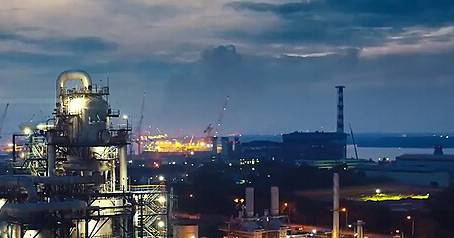டிசம்பர் . 07, 2024 12:56 Back to list
polypropylene pp sheet
The Versatile Applications of Polypropylene (PP) Sheets
Polypropylene (PP) sheets are increasingly gaining recognition in various industries due to their remarkable properties and versatility. Made from a thermoplastic polymer, polypropylene is lightweight, robust, and resistant to chemical corrosion, making it an ideal choice for a wide array of applications. In this article, we will delve into the characteristics of polypropylene sheets, their manufacturing processes, and their numerous uses across different sectors.
Characteristics of Polypropylene Sheets
Polypropylene sheets possess several key characteristics that contribute to their popularity. Firstly, they are incredibly lightweight, which aids in ease of handling and installation. Despite their lightness, PP sheets are notably strong and durable, providing excellent impact resistance. Additionally, they exhibit good tensile strength, allowing them to withstand stress without deforming.
Another significant feature of polypropylene sheets is their resistance to various chemicals, including acids, bases, and solvents. This property makes them suitable for containment and storage applications where chemical exposure is a concern. Moreover, polypropylene sheets have a low moisture absorption rate, adding to their durability and longevity in different environments.
Thermal resistance is another advantage of PP sheets. They can operate effectively in a range of temperatures, making them ideal for applications requiring heat resistance. Furthermore, they are available in a variety of colors and finishes, offering aesthetic flexibility for designers and manufacturers.
Manufacturing Processes
The production of polypropylene sheets typically involves a few key steps. The process begins with the polymerization of propylene monomers, which are obtained from natural gas or crude oil. Through a process known as extrusion, the polypropylene is melted and formed into sheets of desired thickness and width. This method allows for efficient mass production and uniform material characteristics.
polypropylene pp sheet

Once the sheets are formed, they can undergo additional processes such as cutting, die-cutting, or thermofoming to tailor them for specific applications. The versatility in fabrication techniques allows manufacturers to create custom shapes and sizes as per client requirements, making polypropylene sheets highly adaptable.
Applications Across Industries
The versatility of polypropylene sheets opens up a multitude of applications across various industries. One prominent area is packaging. Due to their lightweight nature and resistance to moisture, PP sheets are widely used in the production of containers, trays, and packaging materials. Their strength ensures that products are well-protected during transit, while their recyclability aligns with sustainable practices.
In the construction industry, polypropylene sheets are utilized for a variety of applications, such as wall coverings, insulation, and roofing materials. Their lightweight yet robust characteristics help reduce the overall weight of structures, enhancing efficiency during construction.
The automotive industry also benefits from the adoption of PP sheets. They are often used in manufacturing interior components, bumpers, and other structural elements. The material’s resistance to wear and tear, combined with its ability to be easily molded, makes it an ideal choice for automotive applications.
Additionally, polypropylene sheets find extensive use in the medical field. They are employed in packaging for medical devices, pharmaceuticals, and laboratory equipment due to their sterile properties and chemical resistance. The ability to easily sanitize PP sheets further contributes to their prominence in healthcare settings.
Conclusion
In conclusion, polypropylene sheets are a prime example of how modern materials can meet the demands of various industries. Their unique properties—such as lightweight strength, chemical resistance, thermal stability, and versatility—make them indispensable in applications ranging from packaging to automotive manufacturing. As industries continue to evolve and prioritize sustainability, the role of polypropylene sheets is likely to expand, underscoring their significance in a wide array of applications. As we move forward, innovations in polypropylene technology will undoubtedly lead to even broader uses, reinforcing the material's stature in the manufacturing landscape.
-
HDPE Pipe Fittings: Durable, Leak-Proof Solutions
NewsAug.16,2025
-
Premium CPVC Sheet: High-Temp & Chemical Resistant Solutions
NewsAug.15,2025
-
Durable PPR Pipe for Hot & Cold Water Systems - Easy Install
NewsAug.14,2025
-
Durable HDPE Sheet | Versatile & Impact-Resistant Plastic
NewsAug.13,2025
-
Premium PVC Soft Sheets: Clear, Flexible & Durable
NewsAug.12,2025
-
Premium PVC Round Rods: Durable, Chemical Resistant, Easy to Machine
NewsAug.11,2025

